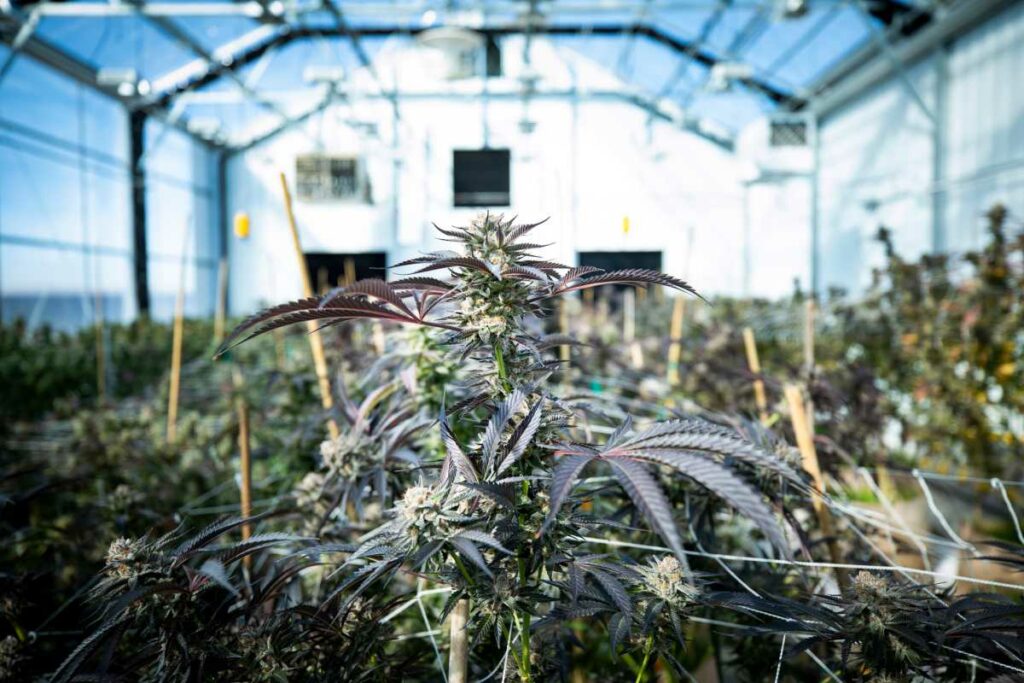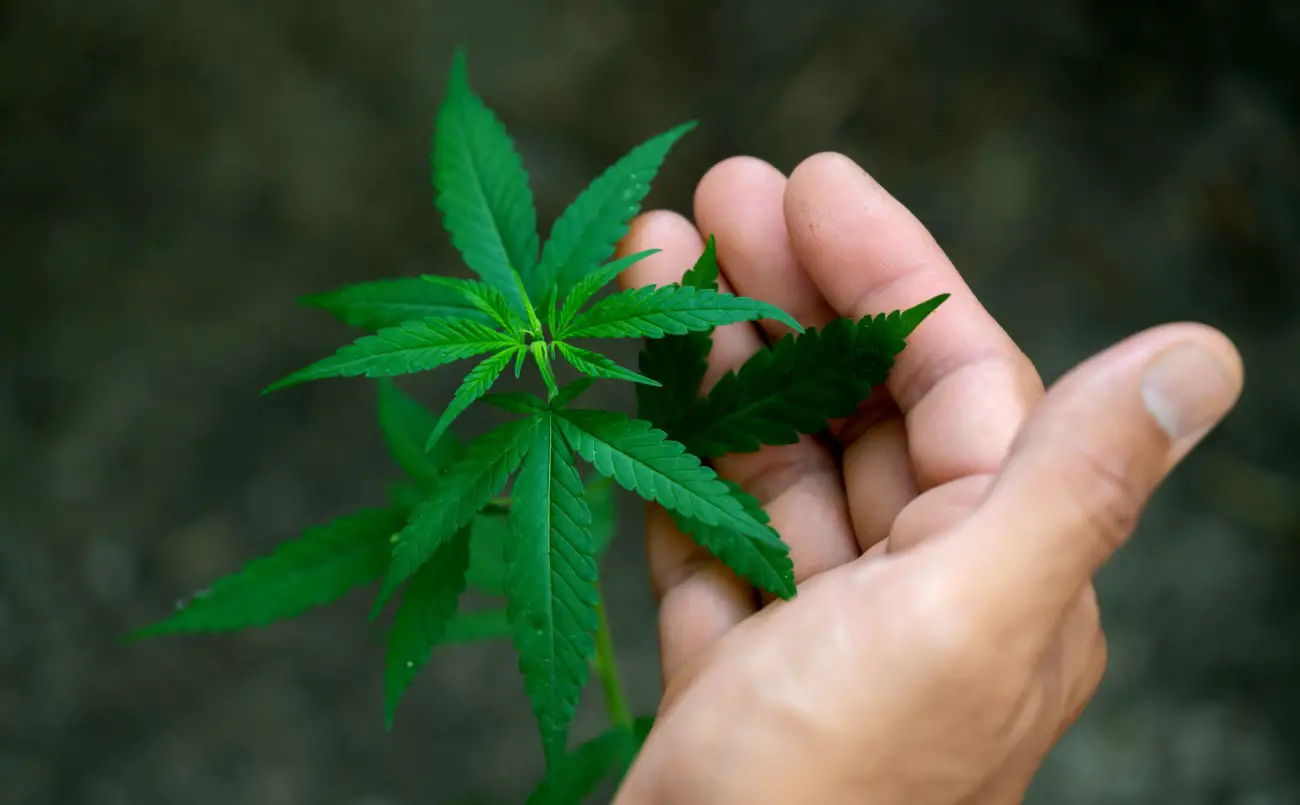Vegging time plays an integral part in the weed-growing process. When you veg for a suitable duration, you will get the most out of your buds. And that’s what growers want— to get the most buds from their growing efforts.
Vegging time is also one of the few factors that the grower can manipulate to increase their yields.
Once the plant flips to flowering, you want to minimize training as possible so that the plant concentrates more on growing the buds and not growing new shoots.
Once the two weeks of flowering end, the plant won’t grow more in size. The stretch phase ends all noticeable, impactful growth.
Thus, when you get the vegging duration right, you are halfway to a bigger yield.
Can You Veg For 3 Months?
You can veg for 3 months if you’re growing outside because nothing is barring the plant from vertical growth. It grows as big as you want to, and when the time is right, you initiate flower. Indoors, vegging for three months will be troublesome because of limited space.
Imagine vegging for too long that your plant can’t fit safely below the lights. Depending on the lights you’re using, you need to leave some space between the plant’s canopy and the light.
Unless you choose strains that grow short. Strains for limited growing spaces, then you’ll be disappointed when your plant grows taller than the grow tent.
If the plant gets too close to the lights, they get light burn, leading to airy buds and ultimately low yields. Here is a small guide to help you leave the appropriate space between the canopy and a specific type of light;
The Right Distance To Keep Between the Plant and Different Lights
| Light Type | Watts | Distance from the Plants |
| HID Grow Lights | 400w | 12″-19″ |
| 600w | 14″-25″ | |
| 1000w | 16”-31″ | |
| LED Grow Lights | 240-400w | 16-30” |
| 450-550w | 20-30” | |
| 600-850w | 24-26 | |
| 900w+ | 26-42” | |
Considering the space you need to leave atop the plant, vegging for three months can be pretty troubling. You’ll need bigger pots too, and when you have to flower more than one plant, the tent space can be limiting.
Most cannabis plants will about 8 inches after three months of vegging— and that’s after repeated defoliation to keep the growth in check.
If you’re just beginning and do not wish to defoliate heavily, then vegging for 3 months indoors isn’t for you. Uncontrolled height brings the canopy closer to the light source, and light burn is no friend of the buds.
LED Grow Lights We Recommend
No products found.
Why Bigger Cannabis Plants Are Better
Vegging for longer isn’t a craze or fad that’ll fade away with time. It is a high-yielding growing technique that can triple your yields if your growing conditions allow.
Even after defoliating heavily to enhance light penetration, an 8-inch and above plant is a yielding beast that will wow you with numerous bud sites. Thus, more buds.Bigger plants also benefit from robust root development. When you veg for longer, the roots get deeper into the ground and, thus, supply your plants’ nutrient and water needs during bloom for optimum growth and a bigger yield.
Things To Consider When Vegging For 3 Months
Space- Growing massive plants require a bigger space to support the plant’s vertical and horizontal growth.
Indoors, think about the height of the bucket, the inches you need to leave between the plant and the grow light, and the space available in the tent for horizontal growth.

Nutrients- The longer you stretch the veg period, the more nutrients you’ll need for the phase. Someone who vegs for 6 weeks will require smaller amounts of nutrients than someone who keeps the plant in veg for 90 days.
Grow buckets-The length of veg determines the size of grow buckets you’ll use. The longer you veg, the bigger the grow bucket you require.
The plant’s roots will need more space to thrive and be healthy, and if you don’t use the appropriate grow bucket, they’ll be rootbound in no time.
Rootbound plants don’t yield much.
Also, you need a larger bucket to help you when tying the lower branches. Tying down the lower branches on the edge of the grow buckets helps keep the plants spread out for better light exposure.
While you can use bigger buckets, like 20-gallon pots to veg as long as you want outdoors, do not begin with the big pot as that puts your plant at risk of root rot and malnutrition.
Small plants do not do well in big pots because the roots aren’t yet developed enough to reach the nutrients that might be washed farther from the center of the pot.
And since the roots aren’t fully developed, the water stays on top of the grow medium for longer, inhibiting airflow into the soil. It can also cause waterlogging, attracting the same problems as overwatering.
Instead, you should begin with a 2-gallon pot and then transplant your ladies into a 5-gallon pot before flowering into the ultimate giant pot.
Some plants grow short, while some grow bigger. Depending on the genetics of your plant, the 5-gallon pot might just be enough for flowering after the 3-month veg.
Your skill level— growing big plants require more skill than growing small plants. If you don’t trust your novice thumbs to defoliate as necessary, you should stick to small plants.
Unlike small plants, which you defoliate to open the plant up for better light exposure, you’ll need to cut some branches off the giant plant to control its height.
It’s a balance. You need the branches to produce enough bud sites, but you don’t want them to mock your grow set up.
Can you LST, supercrop, and FIM your plants without stressing them much? If you can’t, you better stick to small plants that don’t require height control.
Are 4 Weeks Veg Enough?
You can veg for four weeks if your grow space is limiting, but it will restrict your yield considerably. If you only stretch the veg for two more weeks, then you’ll get better yield out of your plant. If space isn’t an issue, always aim for at least six weeks of veg.
Apart from limiting the plant’s height and yield, some strains show their sex quite late, and 4 weeks of veg might not give you enough time to be sure of your plant’s sex.
In summary, vegging for three months is a great way to increase your yield. The longer you veg, the bigger the plant, and the more bud sites, thus more yield. However, you’ll need to have adequate space for the extra plant growth to reap the benefits of vegging for longer.

